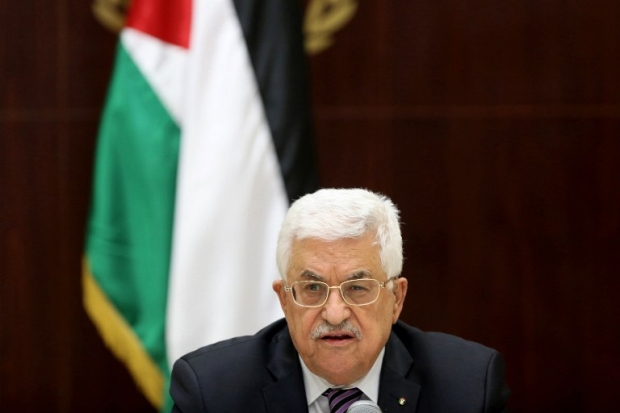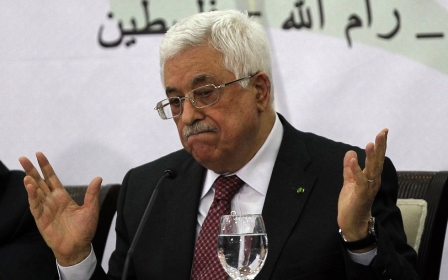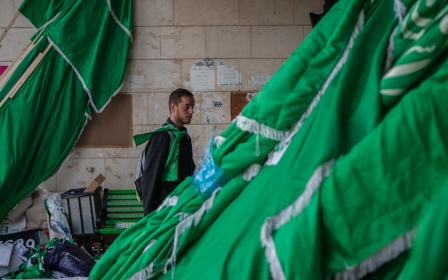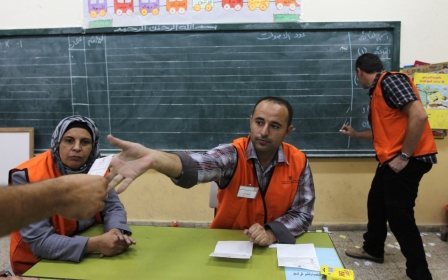Whither the Palestinian Authority?
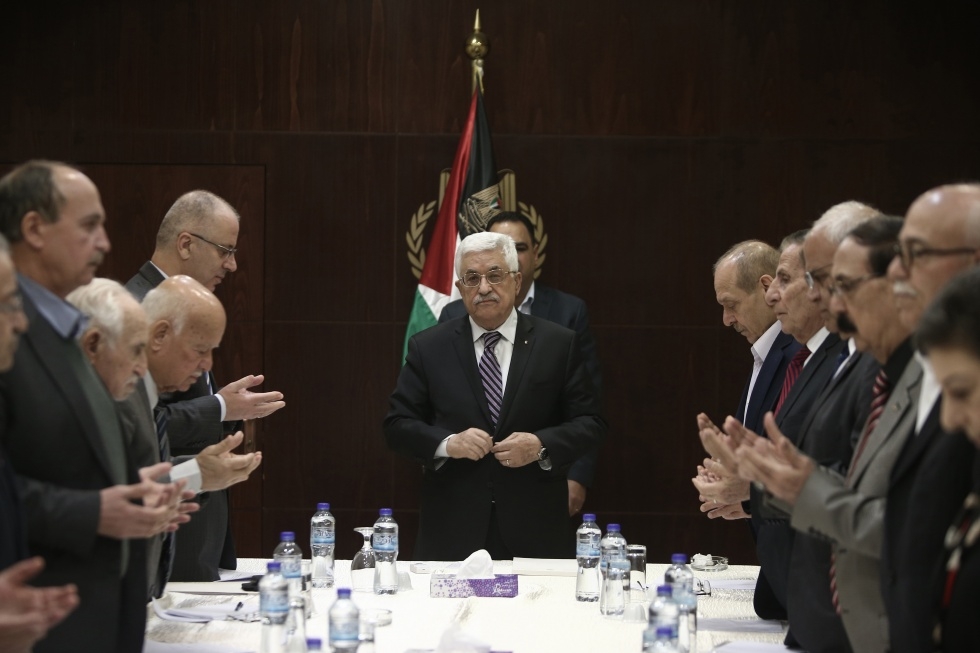
In the last few years, top officials from the Palestinian Authority (PA) have stepped up threats to dissolve the governmental body in the West Bank, as a response to the bottleneck situation into which they accuse the Israeli government of forcing them.
President Mahmoud Abbas threatened to dissolve the PA in November 2009, as Israel, backed by statements made by then-secretary of state Hillary Clinton, refused to halt settlement construction.
In December the following year, Abbas alluded once again to dismantling the PA, calling on Israel to take up his role of presiding over the Palestinians.
“I cannot accept to remain the president of an authority that doesn’t exist,” he said at the time.
Since then, the octogenarian has followed up with several more proclamations and threats. Following in a similar suit, chief negotiator Saeb Erekat said that Israel “managed to destroy” the PA after it withheld tax revenues as a response to the PA joining the International Criminal Court in January 2015.
Dissolving PA not on the agenda
On the other hand, Jibril Rajoub, the former head of the PA’s Preventative Security Forces and current president of the Palestine Football Association, strongly refuted any dissolution of the PA.
“No one would dare to dismantle the Palestinian Authority,” he told Middle East Eye. “The PA is demanding Israel to take responsibility for the Palestinian people. In other words, what this means politically is that the PA is considering its role, and not whether it should exist or not.”
Rajoub asserted that the executive committee of the Palestine Liberation Organisation (PLO) is looking into “reassessing the bilateral relations with Israel” in the security, political, economic and legal fields, and that dissolving the PA is simply not on the leadership’s agenda.
“The PA is a genetic issue for us because the substitute for authority is chaos,” he stated.
In comments made exclusively to MEE, Erekat denied any intention to dissolve the PA, calling the assumption incorrect.
“We haven’t said that we are going to dissolve the Palestinian government,” he said. “What we have been saying is that it is Israel that is doing everything possible in order to dissolve the Palestinian Authority by choosing colonisation over peace, and that in that case, they will have to assume its full responsibility as the occupying power.”
Erekat attributed the inconsistencies regarding statements on dissolving the PA to the existence of technocrats and over 13 political parties in the political arena.
“We cannot control what each person says,” he stated, stressing that it is not in the best interest to dissolve anything but instead to figure out what role the Palestinian government should have.
“The fact that today we have a committee working on that matter, with representatives from civil society, PLO parties, trade unions and even Hamas, shows that this constructive discussion is finding points of agreement in several initiatives, including mainly our internationalisation approach,” he said.
Trapped by economic dependence
Established in 1993 as the outcome of the Oslo Accords signed between PLO members and Israeli officials, the PA was intended to be an interim five-year government that would prepare Palestinians for concrete self-governance.
Twenty-two years later, the PA has tenaciously held on to its temporary legality and developed into a permanent, heavily institutionalised form of administration with full civil and security control on just three percent of the West Bank, called Area A. The Israeli occupation has also entrenched itself further by using the pretext of negotiations to perpetuate more appropriation of Palestinian lands and resources, arrests, and killing of thousands of unarmed civilians.
Furthermore, the PA’s donor economy meant that it is left with no choice but to acquiesce to the demands of the international community and Israel, or face the withholding of funds and tax revenues, thus undermining its stance for its domestic audience. Since its formation, the PA has received a total of $24 billion of aid from the international community.
The fact that over a third of its national budget is allocated to its security forces has led to the PA being described as a police state with regards to its suppression of dissent and political prisoner arrests.
Diana Buttu, a human rights lawyer and former spokesperson for the PLO, believes that the PA will not collapse.
“[The PA] just in this position where they are saying the right things for a domestic audience but they’re not going to do anything when it comes to challenging Israel,” she said. “It’s going to stay on this terrible system of life support.”
Buttu points to the PA’s economic dependency on donor aid as a big obstacle to why it will not dismantle itself.
“They’re so donor dependent that they are pushed into this corner where they can’t step away from donor funds,” Buttu said. “Donor funds come with strings, and the main string here is that some form of security co-operation [between the PA and Israel] must remain in place.”
Some 160,000 Palestinians directly rely on the PA for their salaries, as the latter represents the biggest employer for Palestinians. When multiplied by the average number of the members of a Palestinian household (five), an estimated 800,000 Palestinians are dependent on the PA for economic security.
Challenges of the Palestinian political system
The existence of the PA, regarded by its opponents as a subcontractor to the occupation, is very much in the interests of Israel. According to The ‘Day After’ Final Report, which surveyed Palestinian opinions on dismantling the PA or not, the PA “releases the occupying power from the responsibility to care for those living under its occupation and it shields Israel against the demographic threat."
Thus, the threat to dissolve the PA by Palestinian officials is seen as a message and reminder to Israel that the alternative to the two-state solution is costlier. Should the PA follow through, Israel as the occupying power under international law would be responsible for the governance of Palestinians.
This in turn would present Israel with three options: to end the occupation and grant Palestinians independence and sovereignty, to absorb Palestinians and grant them Israeli citizenship or to continue the occupation and become an apartheid state.
According to Alaa Tartir, programme director for Palestinian policy network Al-Shabaka, the question of dissolving the PA is irrelevant. The focus should be more about reconstructing the framework and obligations of the authority to its constituents, a step beyond reformation.
“We should ask what needs to be done now to reconfigure the duties of the PA so that it causes less harm to the Palestinian struggle for self-determination and national liberation,” Tartir explained, pointing out that the PA framework has had detrimental consequences on Palestinian liberation for the last two decades.
“However, it is crucial to recognise that the current leadership is neither interested or willing, nor able to reform or reinvent [itself],” he continued, referring to the Palestinian political system’s inherent and structural inability to address the Palestinian people’s needs and aspirations.
Diana Buttu agrees, underlining that Abbas has a different set of priorities.
“Abu Mazen [Abbas] is what I would call a territorialist,” she said. “He is not someone who believes in liberation, he believes in territory. Any small thing that he can call a state is great [for him].”
Tartir acknowledges that the Oslo Accords political framework cannot act as a representative body to the nearly 12 million Palestinians within the country and those displaced outside of it.
“A new political programme must have the people in its core and their voice and power must lead the next phase,” he said, referring to a referendum of the Palestinian nation, which will address views on the proposed solution to the conflict, the right of return and modes of resistance.”
“There is a need for a fundamental change that first and foremost addresses the imbalances of power between the occupier and occupied, and clashes with the colonisers instead of collaborate with them.”
Frustration of the Palestinian youth
In a previous interview with MEE, Palestinian legislative member Hanan Ashrawi said that while she would like to see the Palestinian youth take over government, they would not be able to affect productive changes.
“They will inherit an occupation that is ruthless,” Ashrawi said. “They will have a situation where you have people who have needs and demands that are impossible to meet because you will inherit a biased US and an acquiescent EU.”
“[The youth] are not getting what they want from their only leadership but they have not formulated their own policies and they do not have the tools,” she added.
Buttu points out how almost 50 percent of the population are youth who have lived their entire lives under the PA, and how their interaction with it is only through security bases or occasional services via the ministries.
“There isn’t really a venue to be able to push back and oppose,” she said, describing the Palestinian government as a “house of cards”. “The PA has co-opted everybody and the way they have co-opted them is by showing them that if the PA isn’t around, then that’s a threat to their very existence. In other words they’ve linked the existence of the PA to a national Palestinian priority, or issue.”
“The idea of change is not a very light or simple one.”
New MEE newsletter: Jerusalem Dispatch
Sign up to get the latest insights and analysis on Israel-Palestine, alongside Turkey Unpacked and other MEE newsletters
Middle East Eye delivers independent and unrivalled coverage and analysis of the Middle East, North Africa and beyond. To learn more about republishing this content and the associated fees, please fill out this form. More about MEE can be found here.


